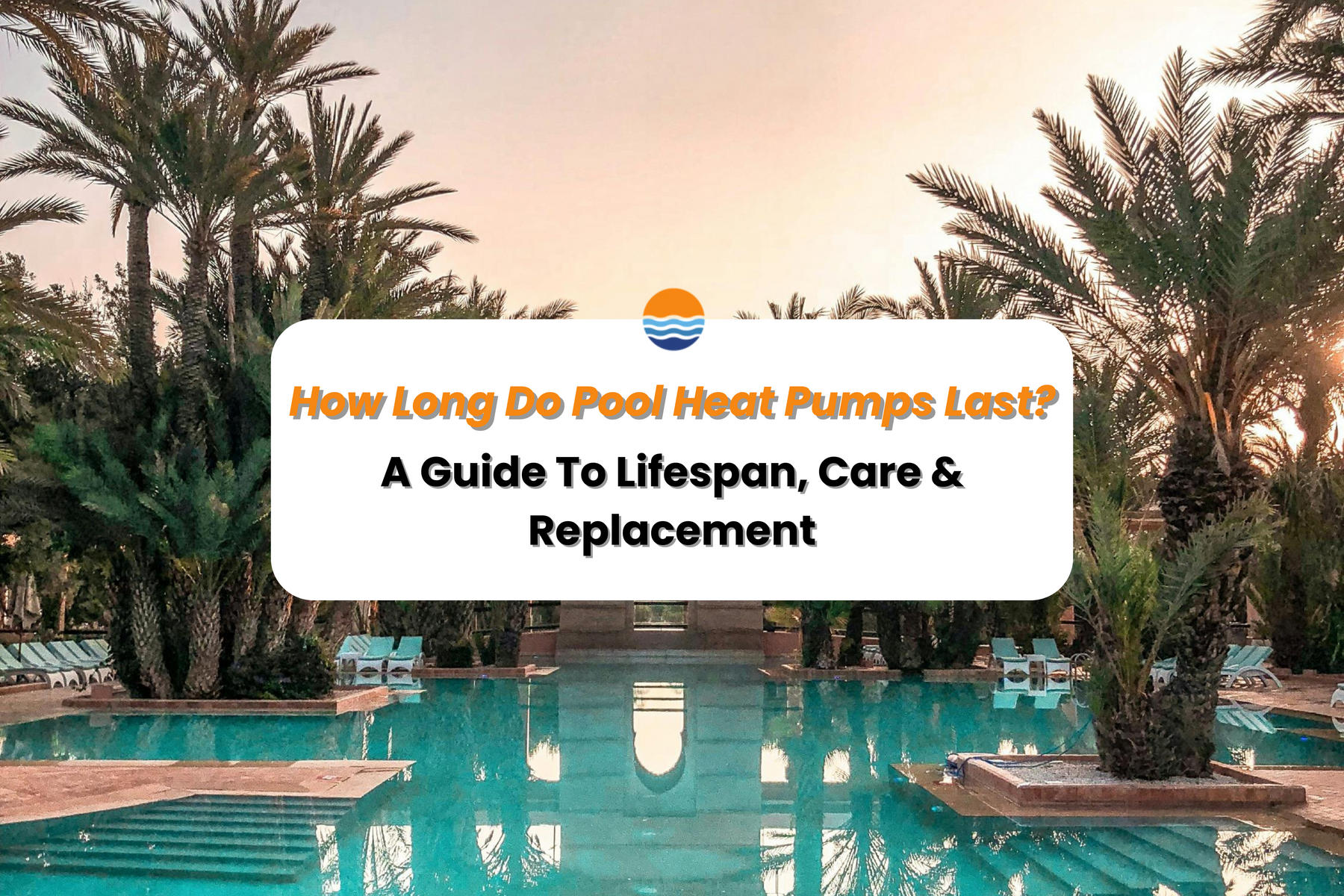
How Long Do Pool Heat Pumps Last?
The Lifespan of Pool Heat Pumps: What to Expect
Think of your pool heat pump like a car - it works hard, keeps you comfortable, and yes, eventually needs replacing.
Short answer? Most pool heat pumps last 8 to 15 years.
Curious what makes the difference?
Keep reading to find out what helps them last longer, what wears them down, and how to spot trouble before it starts.
Average Lifespan of Pool Heat Pumps
A well-maintained pool heat pump can last anywhere from 8 to 15 years. Some owners see even longer use with consistent care.
The exact lifespan depends on the brand, how it’s used, and whether it gets the attention it needs.
Higher-end models tend to hold up better over time. For example, brands like AquaCal or GulfStream are known for products that have long-term durability and efficiency.
Meanwhile, budget options may only last around 5 to 8 years, especially with heavy use or poor upkeep.
Factors Influencing Pool Heat Pump Longevity
Heat pumps don’t just wear out from age. How you treat them plays a huge role in how long they stay running.
Let’s break down the main factors that make or break their lifespan.
Quality of the Unit
There’s a big difference between a bargain-bin unit and a solid, well-built one.
Top brands like AquaCal and GulfStream use corrosion-resistant materials, weatherproof housings, and high-efficiency compressors. These details might not seem exciting, but they’re what keep your unit from breaking down early.
Cheap models can still do the job, but often need more repairs and don’t last as long.
If you're planning to enjoy your pool for years to come, it’s worth getting a heat pump that won’t give out after a few seasons.
Proper Installation
A pool heat pump needs more than just plugging it in.
It should be level, secure, and positioned in a place with good airflow.
If it’s crammed into a corner with no room to breathe, the system works harder and wears out faster.
Worse, poor plumbing or electrical setup can damage the unit from the start.
Hiring a qualified technician is the smartest move here. A bad install can cost you years of life on your pump.
Regular Maintenance
Even tough machines like heat pumps need some TLC.
The basics? Keep the outside clear of leaves and debris. Make sure airflow isn’t blocked. Rinse the coils occasionally and check for signs of wear each season.
At least once a year, get a professional to inspect refrigerant levels, clean internal components, and make sure the compressor and fan motor are still going strong.
These small steps can prevent big problems down the road.
Usage and Operational Load
If your pool heat pump runs every single day, it’s naturally going to wear out faster.
The same goes for units working in tough climates. Near the coast? Salt air can corrode metal parts faster than expected.
Live somewhere chilly? Your pump works overtime to keep water warm, especially during shoulder seasons.
The more strain your system handles, the more often it needs checks and care.
It’s like any other machine - high use = high wear.
Maximizing Your Pool Heat Pump’s Lifespan
Want your heat pump to last a full 15 years? Maybe even longer? Here’s what makes the biggest difference:
-
Clean it regularly. Remove dirt and debris from the exterior. Make sure nothing blocks airflow.
-
Balance your pool water. Poor water chemistry can cause corrosion inside the system.
-
Get yearly service. A quick inspection can catch problems before they become expensive repairs.
-
Winterize it properly. Turn off the power, drain any remaining water, and use a weatherproof cover.
-
Protect it from the elements. If possible, place it away from salty breezes or direct splash zones.
It’s not hard to maintain, but it does need consistency.
Recognizing Signs of a Failing Pool Heat Pump
Your heat pump won’t quit silently. It usually drops a few hints along the way. Here are some signs to watch for:
-
Takes longer than usual to heat your pool
-
Strange noises like rattling, buzzing, or clicking
-
Turns on and off constantly (short cycling)
-
Energy bills creeping up with no changes in use
-
Rust, corrosion, or visible leaks
If your pool heat pump is showing any of these symptoms - especially if it’s over 10 years old - it might be time to think about a replacement. Better to upgrade than get stuck mid-season without warm water.
Related reading:




Leave a comment